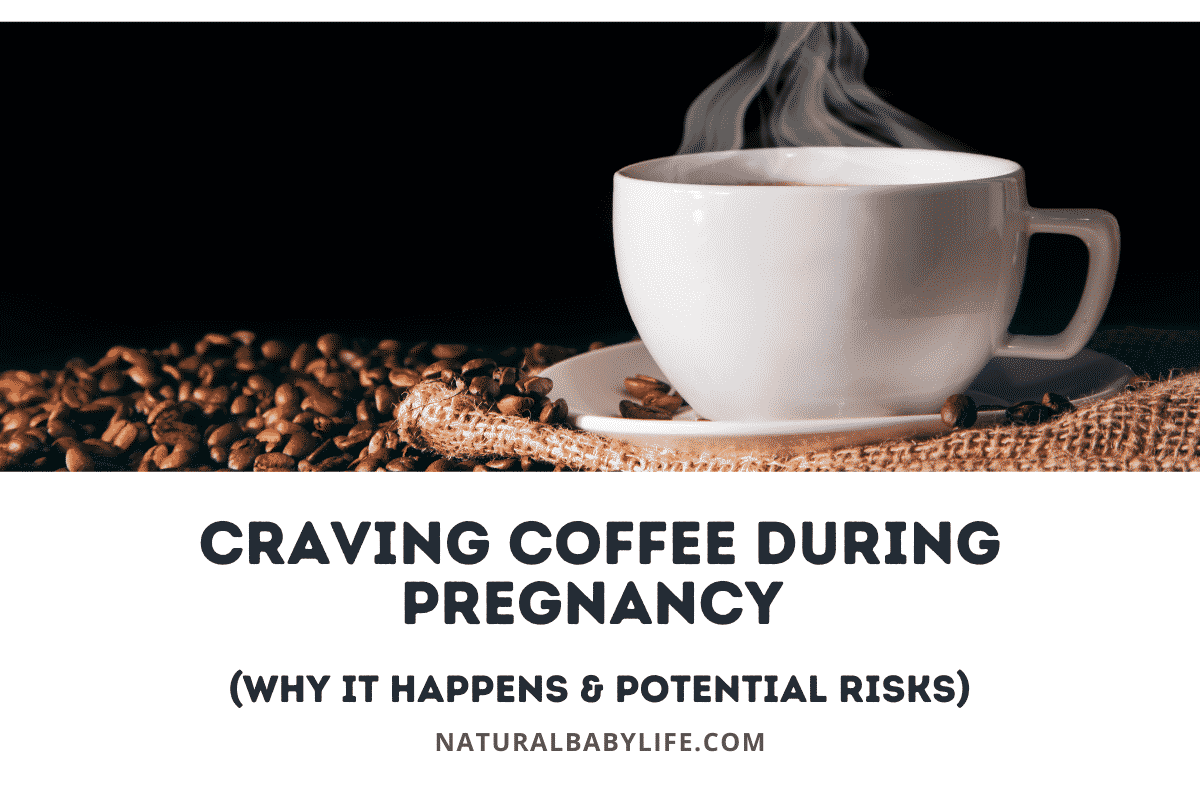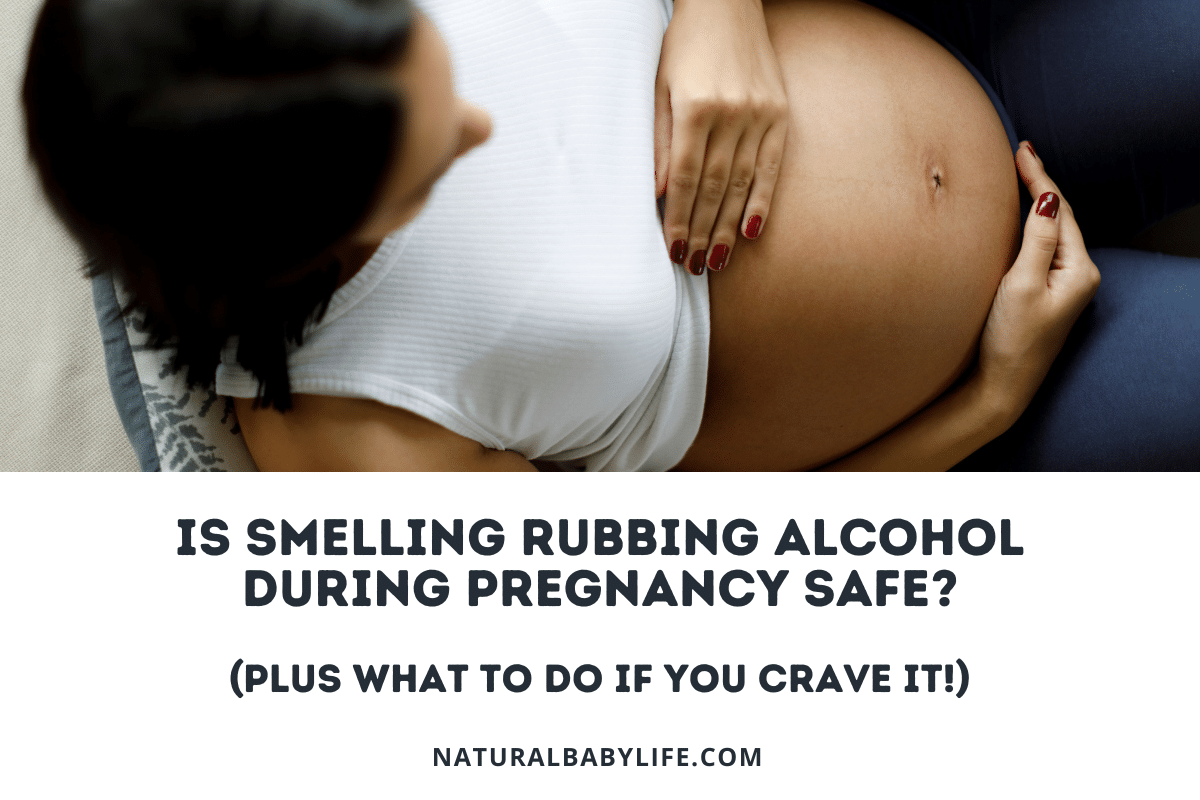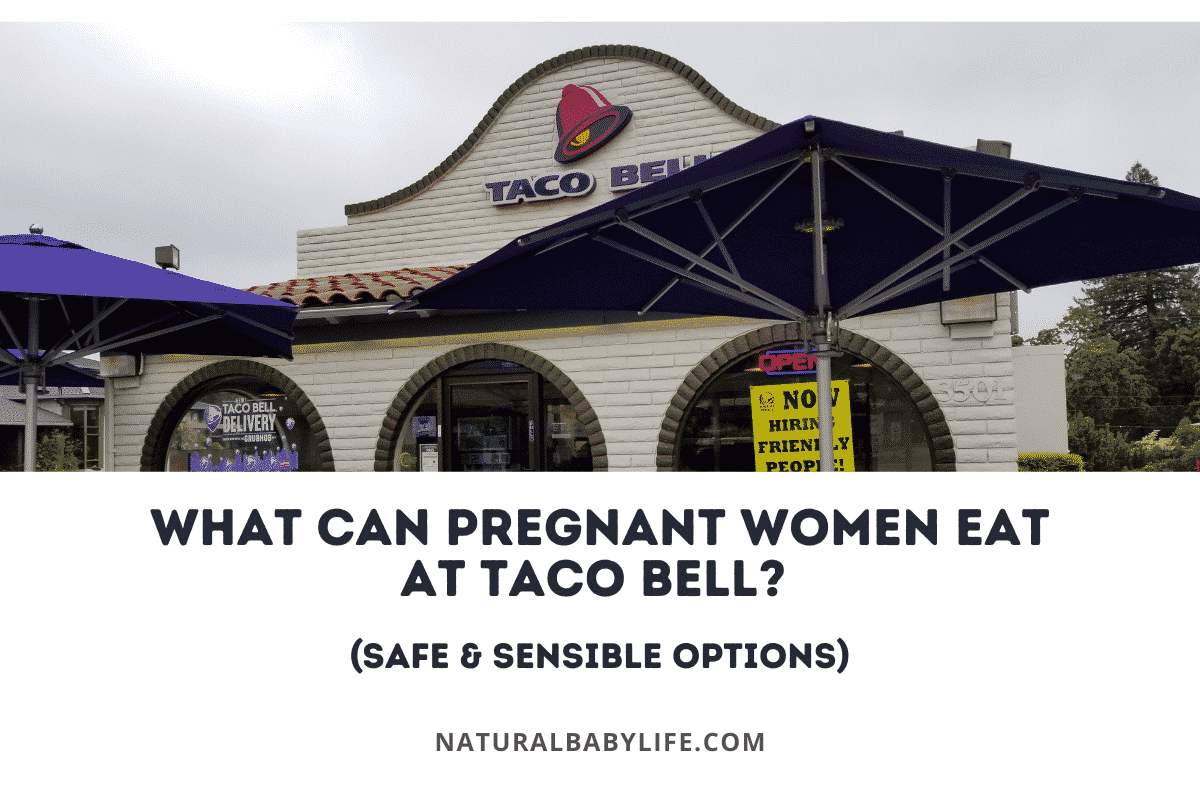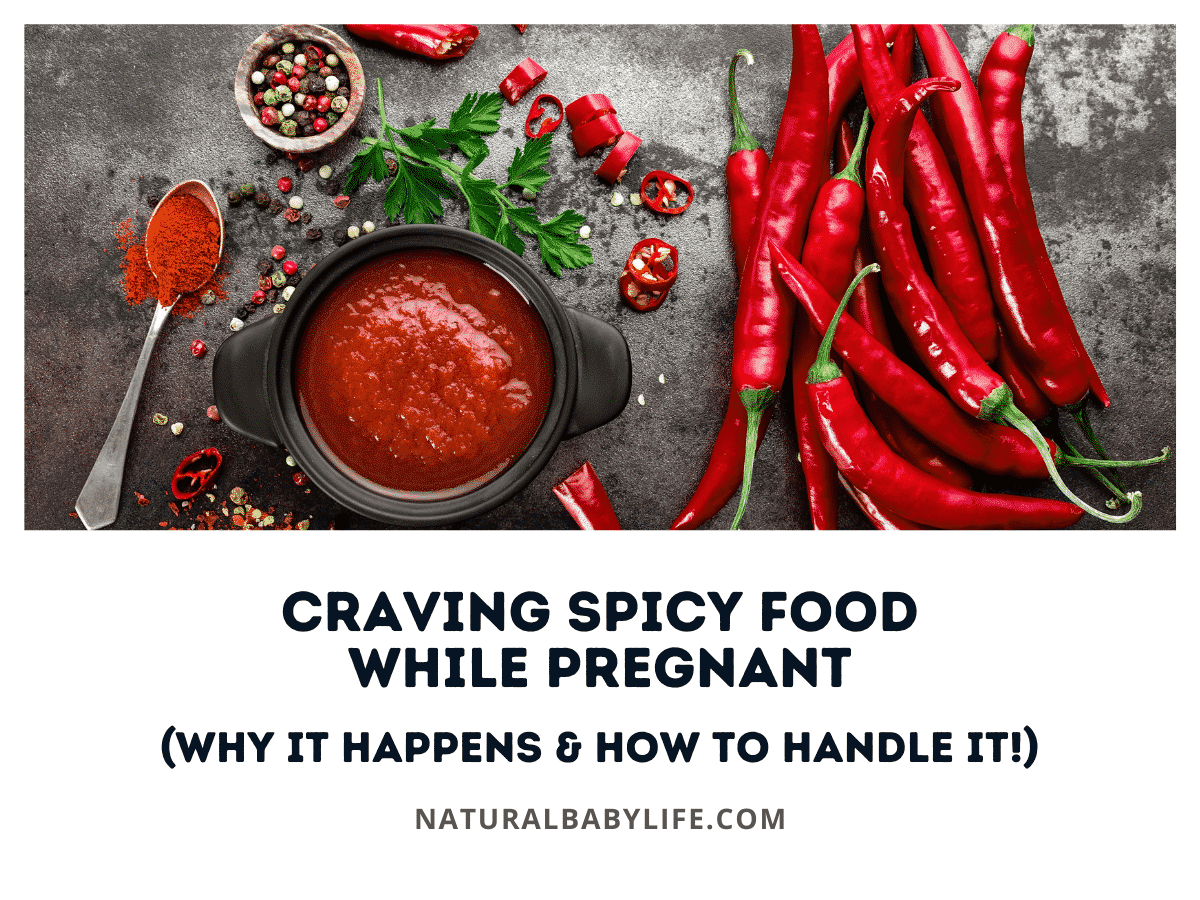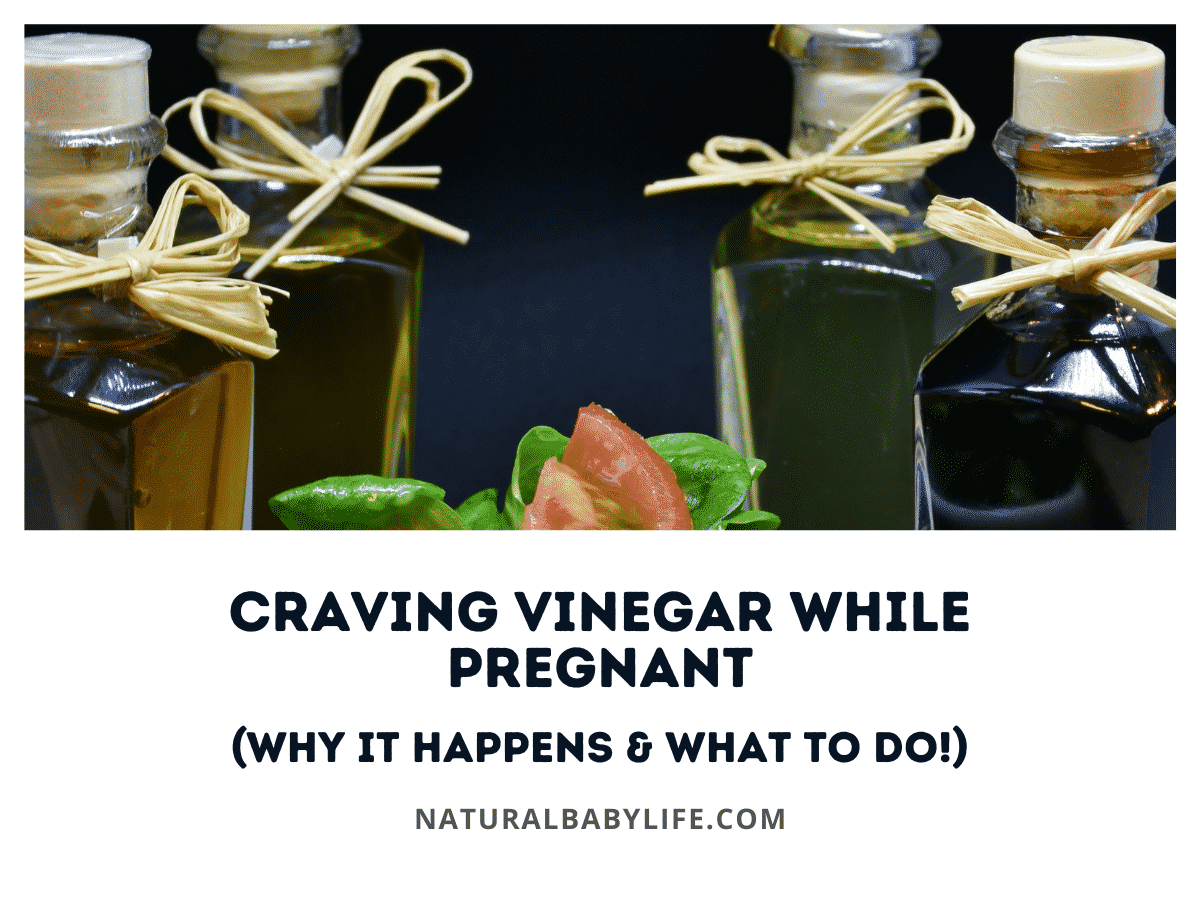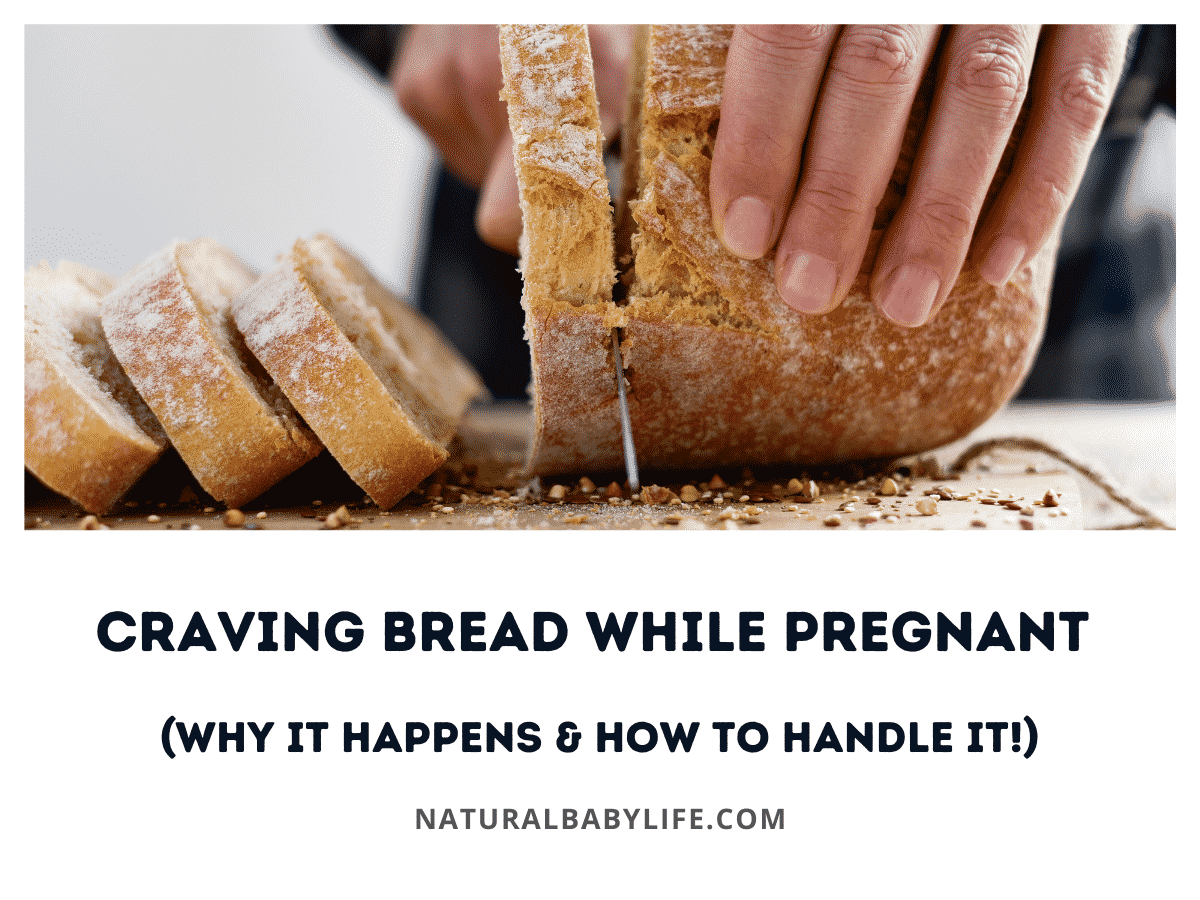Whether you’ve always been a coffee drinker or never touch the stuff, you may find yourself craving coffee during pregnancy. You may be asking yourself why you just can’t get enough coffee lately, and if there are any potential risks in caving to the craving.
Craving coffee during pregnancy is common and research indicates that it may be the result of hormonal changes, nutritional deficiencies, psychological factors, or deprivation of certain foods before pregnancy. To reduce the risk of complications, it’s recommended to limit consumption of coffee to 12 oz per day throughout pregnancy.
Read on to learn if it’s normal to crave coffee while pregnant, what types of coffees have the lowest amount of caffeine and how best to drink coffee if you choose to when you’re pregnant.
Table of Contents
Is it normal to crave coffee while pregnant?
If you’re having cravings while pregnant, know that you are not alone and it’s totally normal.
A study published in Frontiers in Psychology (2014) found that between 50 and 90% of pregnant women report specific food cravings during pregnancy. There is no agreed-upon cause for these cravings, but some experts suggest changes in hormones, and possible nutritional deficiencies could be the culprit.
Others even suggest that cravings could be the result of psychological factors. Dopamine levels in the brain drop during pregnancy. Dopamine is the brain’s “feel-good” chemical, so the cravings could be the result of wanting to compensate for those lower levels with something comforting (like ice cream!).
Still, others contend that women who restrict themselves from certain foods before pregnancy may find themselves craving those foods during pregnancy. And conversely, women who restrict themselves from certain foods during pregnancy may also find themselves craving those things they shouldn’t have.
But, are you wondering why you’re craving coffee instead of a thick piece of chocolate cake?
Why are you craving coffee all of a sudden?
If you’re used to starting your day with a big mug of coffee in the morning, you know that it’s just harder to get started without it.
This habit changes a bit when you find out you’re pregnant. And so does the comfort and alertness it brings to you.
Cravings usually begin by the end of the first trimester. Energy levels drop and you feel tired all the time. Hormonal changes begin to affect your sense of smell and taste. So if you’ve given up or limited your coffee consumption, smelling it brewing or walking into a coffee shop may make you start to crave it.
In contrast, if you’re not a coffee drinker but find yourself craving coffee all of a sudden, it could be the milk or sugar you’re putting into it that is the attraction for your body. Deficiencies in calcium can cause some women to crave dairy, and many women crave sweets during the first trimester.
What if you are craving coffee grounds while pregnant?
Craving coffee is a normal occurrence for some women during pregnancy. Indulging in a cup now and then isn’t considered harmful. But a different type of craving around coffee can definitely be harmful.
Intense cravings for coffee grounds and other non-food items during pregnancy are called pica. The specific cause of pica isn’t known, but according to the Journal of the American Dietetic Association, it can be a sign of vitamin or nutrient deficiency such as anemia.
If you find yourself craving coffee grounds or other non-nutritive items like clay, charcoal, or dirt, be sure to contact your doctor to discuss. Pica can pose a significant health risk, especially during pregnancy.
How much caffeine can you have during pregnancy?
Studies show that even moderate caffeine use during pregnancy can have adverse effects on both mom and baby. However, experts agree that study findings are inconsistent, and more research is needed.
According to the American College of Obstetricians and Gynecologists, pregnant women should limit their caffeine intake to no more than 200 mg per day or the equivalent of one, tall-sized Starbucks coffee. Study results on the effects of caffeine on the fetus vary, but experts agree that limiting caffeine to 200mg daily is prudent.
A Swedish study in 2000 indicated that drinking 5 or more cups of coffee per day during pregnancy doubled the risk of miscarriage. High levels of caffeine during pregnancy have also been linked to smaller birth size, low birth weight, and an increase in pre-term births.
Two other large studies also indicated moderate caffeine intake (less than 200 mg/day) is NOT a contributor to miscarriage or preterm birth.
First trimester
In the first trimester, caffeine consumption from coffee tends to decrease. This is usually caused by pregnancy symptoms such as aversions to strong smells and tastes. And also stomach sensitivity and the onset of morning sickness.
If your stomach can handle it, you can still have the recommended 200 mg per day of caffeine from your favorite coffee. It may be best, however, to cut back until you see how it affects you while you’re pregnant. Caffeine starts taking longer to clear from your system when you become pregnant.
According to the National Institutes of Health, caffeine is metabolized one-third slower during the first trimester of pregnancy. It continues to decrease into the third trimester. Decreased activity of an enzyme in the liver is responsible.
Caffeine easily crosses the placental barrier into the fetus. Study results are mixed regarding how much if any caffeine over 200 mg/day negatively impacts the fetus during pregnancy. That’s why it’s important to stick to this guideline.
Second trimester
Can drinking coffee during pregnancy lead to pre-eclampsia and possible preterm birth?
Pre-eclampsia is a pregnancy complication associated with high blood pressure that can start in the second trimester (after 20 weeks). Symptoms of pre-eclampsia include high blood pressure, protein in the urine, and swelling in the legs.
There is no conclusive evidence that moderate caffeine consumption (<200 mg/day) during the second or third trimester has any significant effect on blood pressure or the development of pre-eclampsia. There are no other specific cautions concerning caffeine intake during the second trimester.
Third trimester
Further reducing caffeine intake during the second and third trimesters does not appear to affect birth weight or preterm birth. There are no additional recommendations for reducing caffeine during the third trimester
Amount of caffeine in various coffee types and sizes
If you’re watching your caffeine intake, it’s important to know that you also must include caffeine you ingest through other foods besides coffee (like chocolate and tea).
The amount of caffeine varies widely between types of coffee (e.g. instant vs brewed) and from brand to brand. It’s best to check the label for the specific coffee you’re drinking, or to check the nutritional information online for your favorite coffee shop. Also, be aware that decaffeinated coffee is not caffeine-free.
Below is a table with a general guideline for the amount of caffeine in various types of coffee. Sizes are listed in the familiar Starbucks nomenclature for reference.
Amount of caffeine in short, tall, grande, venti, and trenta coffee sizes
| Type of coffee drink | Ounces | Caffeine in milligrams |
|---|---|---|
| Brewed Coffee | Short (8 ounces) | 155 |
| Brewed Coffee | Tall (12 ounces) | 235 |
| Brewed Coffee | Grande (16 ounces) | 310 |
| Brewed Coffee | Venti (20 ounces) | 410 |
| Brewed Coffee | Trenta (31 ounces) | 635 |
| Latte | Short (8 ounces) | 75 |
| Latte | Tall (12 ounces) | 75 |
| Latte | Grande (16 ounces) | 150 |
| Latte | Venti (20 ounces) | 150 |
| Latte | Trenta (31 ounces) | 225 |
| Mocha Latte | Short (8 ounces) | 90 |
| Mocha Latte | Tall (12 ounces) | 95 |
| Mocha Latte | Grande (16 ounces) | 175 |
| Mocha Latte | Venti (20 ounces) | 185 |
| Mocha Latte | Trenta (31 ounces) | 265 |
| Instant Coffee | Short (8 ounces) | 57 |
| Instant Coffee | Tall (12 ounces) | 86 |
| Instant Coffee | Grande (16 ounces) | 114 |
| Instant Coffee | Venti (20 ounces) | 143 |
| Instant Coffee | Trenta (31 ounces) | 221 |
| Espresso | Solo (1 shot) | 75 |
| Espresso | Doppio (2 shots) | 150 |
| Espresso | Triple (3 shots) | 225 |
| Espresso | Quad (4 shots) | 300 |
| Cappuccino | Short (8 ounces) | 75 |
| Cappuccino | Tall (12 ounces) | 150 |
| Cappuccino | Grande (16 ounces) | 225 |
| Cappuccino | Venti (20 ounces) | 300 |
| Cappuccino | Trenta (31 ounces) | 450 |
| Brewed Decaf | Short (8 ounces) | 15 |
| Brewed Decaf | Tall (12 ounces) | 20 |
| Brewed Decaf | Grande (16 ounces) | 25 |
| Brewed Decaf | Venti (20 ounces) | 30 |
| Brewed Decaf | Trenta (31 ounces) | 45 |
| Instant Decaf | Short (8 ounces) | 2 |
| Instant Decaf | Tall (12 ounces) | 4 |
| Instant Decaf | Grande (16 ounces) | 5 |
| Instant Decaf | Venti (20 ounces) | 6 |
| Instant Decaf | Trenta (31 ounces) | 10 |
| Espresso Decaf | Solo (1 shot) | 10 |
| Espresso Decaf | Doppio (2 shots) | 20 |
| Espresso Decaf | Triple (3 shots) | 30 |
| Espresso Decaf | Quad (4 shots) | 40 |
The best way to drink coffee during pregnancy
If you don’t know how much caffeine is in the particular type of coffee you are craving during pregnancy, it’s easiest just to avoid it.
If you still have to have that morning cup of Joe to get your day started, do so in moderation and keep your caffeine intake to less than 200mg per day. And remember, just because it says decaf on the label, that doesn’t mean it’s caffeine-free.
If you need more than one cup throughout the day, consider drinking decaf or even half-caf to stay within the daily guidelines. You’ll feel like you’re getting more of what you love, but you’ll still be ensuring your and your baby’s health.

